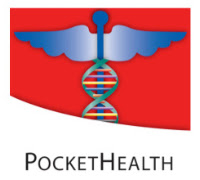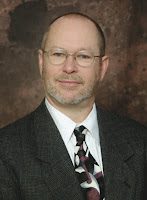So was Partnership With Patients September 21-23, 2012 in Kansas City a success?
We proved it was possible for a loose confederation of patients to
gather and organize with little time and little funding. We were nimble.
It was a great gathering of lovely people from all over the
nation. Patients worked hand in
hand with partners. Each benefited
from the expertise of the other.
Most of all we proved this could be done.
Remember where this saga began? On May 22nd , we were told there was no funding to gather patients
to talk about goals of the Partnership for Patients campaign. Pat Mastors and I thought we had to do something to change this. Kathy Nicholls helped create a website and we began to plan. In the months hence we worked with the team from
Weber-Shandwick and the Partnership for Patients team from CMS to open up
communication between an ever larger group of patients. Representatives were able to come to our Kansas City summit from both Weber-Shandwick and CMS.
HealthTech Hatch: Patient Travel Scholarships
Thank you to Patricia Salber and the entire HealthTechHatch team for their dedication to go live as soon as possible, thereby ensuring we
had a chance to raise the needed funds.
Thank you to all the 34 amazing people who donated to HealthTechHatch
Patient Travel Fund at the Society for Participatory Medicine. We raised $6,085.00 in approximately 2
weeks during the first weeks of public beta.
THANK YOU! Josh Kimberg, Pat Salber, Chris Selecky, John
Sullivan, Juliet Oberding, Dov Michaeli, Marty Diamond, Amy Salber, Elaine
Waples, Bryan Beck, Laurie Nirenberg, Lisa Fields, Josh Krakauer, Susan Hull,
Mee Elizabeth, Scot and Mitch, Megan Grangoff, Jon Mertz, Wayne Pan, Lorrie
Eigles, Peter Boland, Grey Miller, Daniel van Leeuween, Ian Eslick, Kathy
Nieder, Colin Hung, Maureen Bisognano, Jim Hansen, Helen Haskell, Steven
Davidson, Amanda Griffith and Jamie Inman
This allowed the Society to issue 9 scholarships of 500 for
e-patients to attend the event. As
we received over the required amount and as some individuals donated directly
to the Society there was money left over to seed a permanent fund for patient
travel at the Society for Participatory Medicine.
Thank you to our scholarship award winners for being the
first e-patient travel scholars!
Amanda Greene, Richard Anderson, Evelyn
McKnight, Alicia Staley, Bart Windrum, Michael
Weiss, Nikolai Kirienko, Steven Baker,
Winnie Tobin
Medstartr: Travel Funding for the Walking Gallery and
Partnership With Patients
Thank You to Alex Fair and the entire Medstartr team for
their hard work supporting us to meet our funding goal and thank you to the 90
funders who helped us go far beyond our original funding goal. This project was funded at 219% raising
$10,948.00 and broke the record for most funders and most money raised on
Medstartr at the time of the project close.
THANK YOU to our amazing funders! Alex Fair, Nick Dawson,
Gregg Masters, Kim Whittemore, Alexandra Yperifanos, Abby Prestin, Howard Luks,
Ileana Balcu, Donna Scott, Deidre Bonnycastle, Alan Greene, Theresa Willett,
Steve Sisko, Martine Ehrenclou, Benjamin Miller, Jerry Matczak, Pat Mastors,
Lisa Fields, Patricia Salber, Mary Cattolico Camp, Mindy Brown, Kavita Patel,
Clay Patterson, Janice McCallum, Jess Jacobs, Anette McKinnon, Roni Zeiger,
Loring Day, Linda Brady, Marilyn Mann, Heather Leslie, Jon Mertz, Kristen
Andrews, Sarah Kucharski, Carolyn Thomas, Sue Woods, Fred Trotter, Matthew
Holt, Chiara Bell, P. F. Anderson, Phoebe Browning, Ted Eytan, Ronan Kavanagh,
Nicole Dettmar, Andrew J. Rosenthal, Brian Ahier, Matthew Browning, Andre
Blackman, John Moehrke, Symplur, Sherry Reynolds, Pat Mastors, Matthew Katz,
Gangadhar Sulkunte, Bruce Ramshaw, Ann Becker-Schutte, Michelle Litchman, S.
Turner Dean, Lisa Fields, Julia Halisy, Andrew Spong, Peter Levin, Brian
Carter, Colin Hung, Kourtney Govro, Ruth Ann Crystal, Marianne Venitti, Emily
Hackel, Devon Scanlon, Helen Hadley, Mike Sevilla, Joshua Rubin, Noel Eldridge,
Phydian Systems, Alexandra Drance, Susan Eller, Ross Martin, Elin Silveous,
Qpid.me, Joltdude
Thank you to everyone who supported Partnership with Patients
on Eventbrite. Many of you
purchased tickets at sponsorship levels, which enabled us to pay for food,
staffing and shuttles.
Thank You! Susan Hull, Scott Strange, Francie Grace, Howard Luks, Joleen Chambers, Steven Baker, Alexandra Yperifanos, Mark Scrimshire, Maumi Cannell Chatterton, Dean Sellis, Amy Keil, Bunny Ellerin, Katrina Huckabay, Carolyn Capern, Trisha Torrey, Lisa Fields, Michael Millenson, Diane Stollenwerk, Jen McCabe, Pat Mastors, Ryan Neuhofel, Karen MacDonald, Casey Quinlan, Jerry Matczak, W. Joseph Ketcherside, Gary Takher, Jody Schoger, Gayle Sulik, Dave DeBronkart, Douglas Wager, Ken Burke, Eunita Winkey, Bridget Searles Andi Neuhofel, Marcia j. Corbett, Lesa Mitchell, Sarah Barr, Winnie Tobin, David Voran, Roy Foster, Tiffany Peterson, Amanda Greene, Alicia Staley, Richard Anderson, Michael Weiss, Nancy Imber, Robin Miles-McLean, Karen Oliver, Linda Ketcherside, Ross Martin, Colby Meier, Jim Hansen, Peggy Zuckerman, Evelyn McKnight, Amy Burgess, Ann Becker-Schutte, Bart Windrum, Steve Daviss, Joshua Rubin, Diana Lee, Brian Carter, Sarah Kucharski, Kait B. Roe, Olga Pierce, Erin Gilmer, Dan Ford, Erika Hanson Brown
Thank you to our many sponsors
Cerner graciously hosted us in their educational facility as well as helped with coordination and audio visual equipment and staff. Cerner also gave tours of their experience theater to patient groups to better explain HIT policy in real life. Intouch Solutions helped fund patients, promoted the event and and helped pay for food. Pocket Health helped promote the event and paid for food during the weekend conference. Mark Scrimshire and Maumi J Cannell Chatterton with Health Camp added one more weekend to their busy schedule and hosted our unconference day. We owe a great deal of thanks to all the partners listed above that made this event a reality.
The Kansas City Marroitt Downtown was our conference hotel. Even though our contingent was small, four members of the upper management of the hotel came down to thank us during The Walking Gallery. They were honored that we chose their hotel.
Thank You to our Bloggers and Social Media Mavens
Many of the attendees in person or online are wonderful bloggers and here are some of their reflections on the event. I will post other accounts as I become aware of them.
Partners: Ann Becker-Schutte who wrote about the Walking Gallery, Why Your Voice Matters and Transforming Pain Into Purpose.
Joe Ketcherside: Voices Found
Mike Sevilla Partnership with patients Summit
Mark Scrimshire HCKC Recap
Bunny Ellerin Partnership With Patients: A Conference Like No Other
Gary Takher Patients Connected Like Legos
Whitney Bowman-Zatskin Regina Holliday and the Partnership with Patients
Patients:
Bart Windrum Be Ahead of All Partings
Kathi Apostolidis Partnership With Patients Goes Global
Amanda Greene Nothing is Impossible
Michael Weiss Video Summary of Partnership With Patients
Erin Gilmer Partnership With Patients
Scott Strange On Feeling Centered and the Unconference
AfternoonNapper The Ethics of Pharma-Patient Relationship
Corinna West I met the 1000 mile swimmer and Five Things I learned at Partnership with Patients Conference
Alicia Staley Cerner Showcases the Future of Healthcare
Carolyn Capern The Partnership with Patients Summit
Quite a few people wondered at our long hashtag. I told them to read the blog #Cinderblocks and patient Summits. We trended on twitter for the Kansas City region during the conference. Our symplur analytics show over 3k in tweets leading to 9 million potential impressions.
We also had an unexpected guest. On Sunday swimmer Dave Cornthwaite and his support team joined our group as he swam down the lower Missouri to raise awareness and funds for breast cancer. Thank you to Corinna for introducing us.
Thank you to all of our speakers!
We really packed in a lot of content in very few hours thank you to all of our veteran and novice speaker that made that possible. Cerner will post these videos in the months to come and I will link to them here.
Our Partner Speakers:
Ryan Neuhofel, Tobias Gilk, Anne Becker-Schutte, Joe Ketcherside, Josh Rubin, Doug Weinbrenner, Katherine Cartwright Knodel, Jim Hansen, Roy Foster, Olga Pierce, Michael Millenson, Lesa Mitchell, Susan Hull, Bunny Ellerin, Brian Carter
Our Patient Speakers:
Thank you Lisa Fields, Bart Windrum, Joleen Chambers, Tiffany Peterson, Kait B. Roe, Eunita Winkey, Amanda Greene, Carolyn Capern, Jari Holland Buck, Pat Mastors, Erin Gilmer, Casey Quinlan Michael Weiss, Dave de Bronkart, Evelyn McKnight
Reflections
“Was it a success? Was Partnership With Patients in Kansas City Sept 21-23, 2012 all that you had hoped it would be?"
How do you answer that? Maybe the answer is an economic one, "Yes! We raised the money needed to fund it and found a venue to host us." Perhaps answer is and organizational one, "Yes! Patients and Partners flew from all over the nation and locals gave up their weekend to attend this event in Kansas City." Or should we answer in another way? "This event was a moment to recharge the soul and renew the will to fight for others."
Maybe success was having the event in the first place. Maybe success is the willingness to try even if we fail.
At this event I was a moderator and an organizer. I did not deliver a keynote speech; I left that to the many other attendees. I did deliver some closing remarks.
I spoke to crowd about the day, July 21st, 2007, I stood upon the sales counter at the toy store Barstons Child’s Play. It was 11:45 at night and I was cloaked in a witches robe. I was performing a dramatic interpretation of J.K. Rowling’s Harry Potter and the Half-Blood Prince, the sixth installment in the series. As I performed the dialog between Professors Snape and Dumbledore, I looked into the glittering eyes of the hundred plus customers who crowded every isle of our store. Then it was midnight, my performance ended, and the crowd grabbed the new book: Harry Potter and the Deathly Hallows.
My husband Fred and I read Harry Potter and the Deathly Hallows very rapidly, mostly reading for plot. Years later after Fred’s death, I would read it again. It dealt so well with immense journey one undertakes after the death of a loved one. I suppose that is very understandable as J.K Rowling based a lot of Harry’s journey on her own experience with grief after her mother’s death in 1990. I told those assembled that one line from the book spoke deeply to me in my grief.
"I open at the close."
I told them this line was such a powerful one. This is the moment that Harry embraces the greatest failure life has to offer: to die. This is the moment we go on no matter our fate; we will strive, we will try to help others even if our own success is forfeit. In this moment we accept that we can fail, and thereby create an opportunity to vanquish our foe.
That is the close I gave those brave partners and patients who met in Kansas City.
I open at the close; or in this end, exists a new beginning.



















































